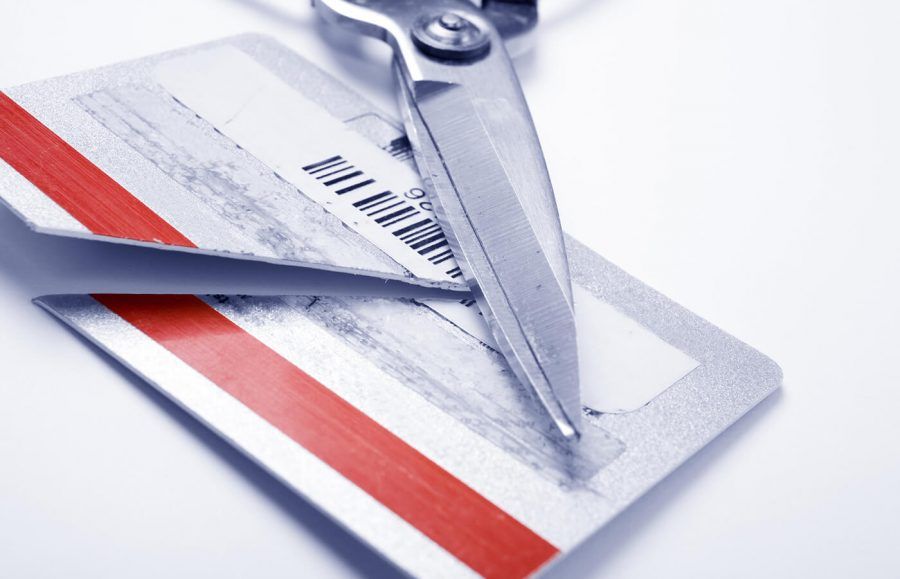At Experian, one of our priorities is consumer credit and finance education. This post may contain links and references to one or more of our partners, but we provide an objective view to help you make the best decisions. For more information, see our Editorial Policy.
If you're considering closing a credit card account, it's important to make sure the account is ready before you call your credit card company, and also to confirm that your request has been completed.
These steps can help you navigate the process of canceling a credit card smoothly and effectively.
Should You Close a Credit Card?
Closing a credit card could be the right move if you've had trouble with overspending or you're not getting enough value to cover the card's annual fee. In some cases, secured credit cards may even require you to close your account to get your security deposit back.
That said, closing a credit card can negatively impact your credit score, particularly if it's your oldest account. Losing the available credit from the card could cause your credit utilization rate to increase, and while the history of the account will remain on your credit reports for up to 10 years, closing it will stop positive contributions to your credit score going forward.
As a result, it's important to weigh both the benefits and drawbacks of canceling a credit card or keeping it.
1. Pay Off Any Balance
You can technically close a credit card with a balance, but interest and fees may still accrue until you've paid off the balance. What's more, your credit utilization rate—your balance divided by your available credit—may spike because you'll still have the balance from the card but not the available credit.
As a result, it's a good idea to make sure you pay off your balance and check for pending transactions before you reach out to your card issuer.
2. Redeem or Transfer Rewards
In most cases, canceling a credit card results in you forfeiting your unredeemed rewards. Some credit card companies may provide a grace period, but it may be better to redeem all of your cash back, points or miles—or transfer them to another rewards program, if possible—before closing your account. You may also want to check for pending rewards from your most recent statement cycle.
One major exception to this rule is if you have an airline or hotel credit card. In those instances, you earn points or miles directly with the partner airline or hotel loyalty program. Those rewards are subject to that program's expiration policy and aren't impacted by your credit card's status.
3. Transfer Recurring Payments to a New Card
If you make payments for utilities, subscriptions, insurance premiums or other recurring transactions on your current card, switch those over to a new credit card or other payment method.
Once your account is closed, new recurring payments will typically be declined, which could result in late payment fees or canceled services.
4. Contact Your Credit Card Issuer
Once you've made sure your account is ready for cancellation, reach out to your credit card issuer to submit your request.
Depending on the card issuer, you may be able to submit your request over the phone (call the number on the back of your card), through a secure message in your online account or via live chat through your account.
You may be asked to provide a reason for the cancellation, and in some cases, the card issuer may offer an incentive to keep the account open, such as bonus rewards if you meet a certain spending threshold.
If you want to proceed, politely decline the offer and ask the representative to complete the request and provide a confirmation.
5. Destroy Your Old Card
To make sure no one gets access to your card or personal information, shred your credit card after it's been canceled. If the card is made from metal, ask the credit card company to send an envelope, which you can return with the card for the card issuer to destroy.
6. Check Your Credit Report
Even after you've received confirmation from the credit card issuer, monitor your credit report until you see that the card issuer has reported the account closed. Also, check to make sure the account is marked as closed by the cardholder, not by the issuer.
If the card is marked as closed by the issuer, future creditors could get the wrong impression when reviewing your credit reports. If the information is inaccurate, you have the right to file a dispute with the credit bureaus, or you can reach out to the credit card company directly.
The Bottom Line
Closing a credit card account can potentially impact your credit score negatively, but it may be the right move if it helps improve your financial health. Take your time to consider all of your options, then follow these steps to ensure you don't lose your rewards or have to continue dealing with a balance.
If you're thinking about replacing the card with a new one, Experian CreditMatch™ can match you with credit card offers based on your credit profile, allowing you to compare options side by side.

